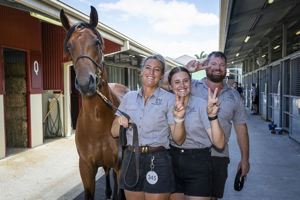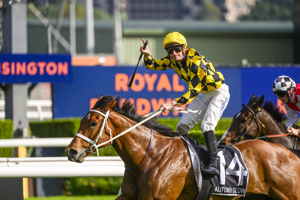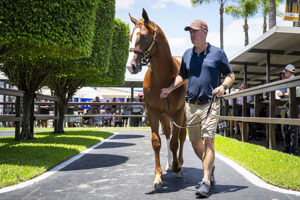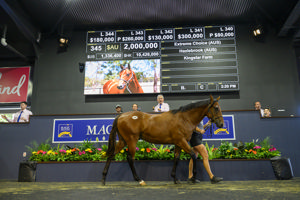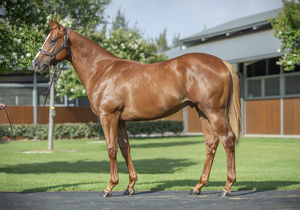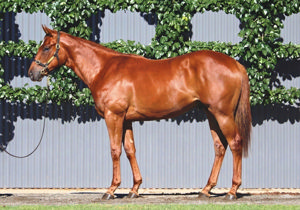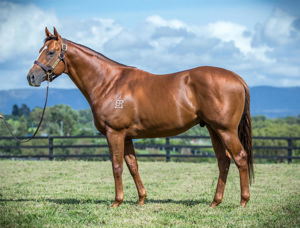As many of you pretty much know by now, any tax case to do with whether an activity is a "Business” or "Hobby” immediately attracts my attention as it is a "hot button” topic in horse tax world.
Without the ATO accepting your activity as an income tax "business” or GST "enterprise”, no losses can be deducted, nor GST credits claimed.
The tax case in question need not be related to the horse breeding and racing industry as it’s the general principles that emerge from these cases that advisers must take special note of.
The case I’m bringing to your attention, decided last month in the AAT, centered around whether a taxpayer, referred to as "NKCX”, was conducting a multitude of activities for GST "enterprise” purposes. Unless an "enterprise” (which can be an activity in "the form of a business”) can be proven, no GST registration is allowed. One of the activities in question was share trading , an activity that many of our clients, and I suspect many of you, are engaged in.
Crucially, it was the lack of a "business plan” that was a major factor that led to the downfall of the NKCX "enterprise” argument. The existence of a Business Plan, as shown in other "Business” or "Hobby” tax cases recently, has become virtually the leading indicator of a business and profit intention with the ATO, especially for the horse industry.
This article ends with some valuable lessons industry players seeking "business” status can learn from this case.
THE FACTS
NKCX was a police officer from 2001 to 10 March 2011.
NKCX acquired an Australian Business Number (ABN) on 20 March 2011 , to undertake the businesses of share trading and mercantile agent/litigation support after he left the police force.
In August 2015, NKCX registered for GST effective from 1 January 2011. In relation to the reason for the unusual four-year delay in registering for GST, NKCX explained that he had an accountant work on his personal income matters, she was aware of his share trading but not of his commercial agent/litigation support work, and he told her that he wanted "to take advantage” of the businesses (i.e. claim tax losses and GST credits) .
His ABN/GST registration was cancelled by the ATO, effective from 3 September 2015, because in their own words "our records show that you’re not carrying on an enterprise”.
NKCX did not accept this cancellation decision and reapplied for an ABN in March 2016, and it was duly reactivated by the ATO, effective from 3 September 2015.
The ATO became curious in relation to anomalies in previous tax lodgings and how this activity had been described and reported in these tax returns (numerous contradictions were evident), the ATO asked NKCX to complete a "Business Profile Questionnaire” in April 2016.
Based on the profile responses, the ATO were not satisfied that a GST enterprise was being conducted, and again cancelled the ABN/GST registration of NKCX in July 2016.
The evidence that NKCX carried on an enterprise of private investigations, mercantile agent, litigation support, and consultancy
NKCX claims that he carried on an enterprise of private investigations, mercantile agent, litigation support and consultancy from about April 2011 to about July 2015.
He claimed that he had undertaken research and made inquiries in relation to this business but acknowledged that he had no business plan and no experience. He claimed that he conducted this business from his home office but used a serviced office address in Sydney.
The evidence provided to the AAT by NKCX re the nature of his activities contained many inconsistencies and factual errors, e.g. his issued a Tax Invoice for his services in April and June 2013, before he registered for GST in August 2015.
The AAT, however, decided that the documentary evidence did not support his contention that he was carrying on an enterprise. There was no evidence of a business plan , no intention to engage in trade regularly, routinely or systematically and he did not operate in a business-like manner or with any degree of sophistication.
The evidence that NKCX carried on an enterprise of share trading
Share trading was the other activity that NKCX tried to seek enterprise status for in the relevant period.
In his statement to the ATO he advised:
"For the purpose of trading shares, I conducted research on the internet, including company websites, ASX releases, news websites, share trading forums and government websites, to enable me to make decisions about what type of shares to trade and when to trade them. I did not purchase subscriptions to databases because there was free information on the internet.”
In a later statement, he explained that he subscribed to E*TRADE Pro trading platform from about April to December 2011 and stopped subscribing because the same information was free on the internet. He attached four "Confirmation of Re-subscription to E*TRADE Pro” for each of April, May, June and November 2011.
During the hearing, NKCX said that he did not do enough research and lost a lot of money.
He produced evidence showing that, during the 2011-2013 financial years, 95 buy orders (totalling just over $4.522m) and 93 sell orders (totalling almost $3.469m) were executed. The most activity (85 buy orders and 60 sell orders) occurred in 2012.
The AAT decided that the taxpayer was not carrying on an enterprise of share trading as he had not traded shares regularly, routinely and systematically during the period in question.
NKCX was not entitled to claim input tax credits in respect of either enterprise.
Consideration of NKCX’s claims to be carrying on the enterprises of private investigations, mercantile agent, litigation support, and consultancy and share trading
NKCX failed to prove that any of his activities were a GST enterprise, and it generally follows, a business for income tax purposes.
In its reasons for disallowing the enterprise status of these activities, the AAT noted that, in addition to the lack of a business plan, NKCX failed to establish the following long held case law "business” factors:
(a) the nature of the activities and whether they have the
purpose of profitmaking;
(b) the complexity and magnitude of the undertaking;
(c) an intention to engage in trade regularly, routinely or systematically;
(d) operating in a business-like manner and the degree of sophistication
involved;
(e) whether any profit/loss is regarded as arising from a discernible
pattern of trading;
(f) the volume of the taxpayer's operations and the amount of capital
employed by him;
and more particularly in respect of share traders :
(a) repetition and regularity in the buying and selling of shares;
(b) turnover;
(c) whether the taxpayer is operating to a plan, setting budgets and targets,
keeping records;
(d) maintenance of an office;
(e) accounting for the share transactions on a gross receipts basis; and
(f) whether the taxpayer is engaged in another full-time profession.
LESSONS FOR THE HORSE INDUSTRY
In summary, I list below what the breeding and racing industry can learn from this case re demonstrating a successful "business” argument with the ATO:
1. Prepare a business plan supporting long-term profit with appropriate projections;
2. Engage advisers who understand your business and can prepare credible "business” tax returns within the required time frames;
3. Professional record keeping is essential;
4. The lack of experts/consultants in an activity is a very negative business factor, a real problem with the share trading of NKCX;
5. Ensure your selling and other business activities occur regularly; and
6. Capital invested is not the main determinative as to whether a "business” is being conducted. NKCX had acquired $4.5 million
dollars of shares during the 2011-2013 financial years.
If you wish for me to clarify or expand upon anything mentioned in this article, please do not hesitate to contact me.
PAUL CARRAZZO CA
CARRAZZO CONSULTING
801 GLENFERRIE ROAD, HAWTHORN, VIC, 3122
TEL:(03) 9982 1000
FAX:(03) 9329 8355
MOB: 0417 549 347
e: paul.carrazzo@carrazzo.com.au

